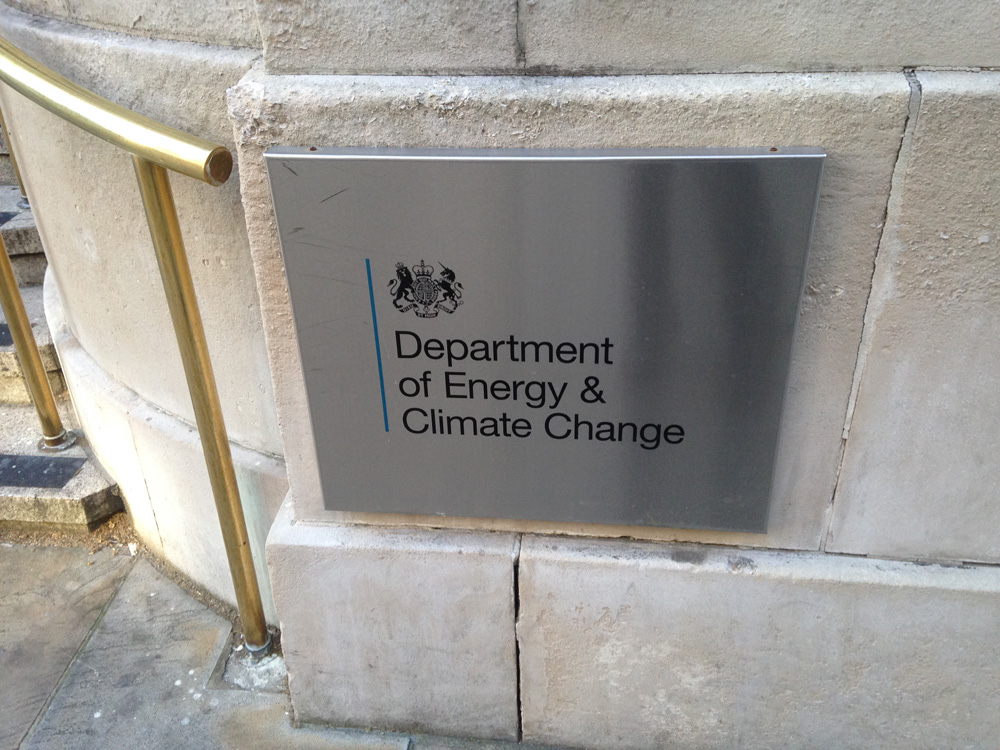
The Department of Energy and Climate Change (DECC) has provided some clarity on the future of the Energy Company Obligation (ECO) scheme by outlining the proposed transitional year before the new scheme is introduced in 2018.
Prior to the new obligation scheme which will be targeted specifically at fuel poor homes, DECC is seeking to provide a gradual change from the current scheme by staggering changes and extending the current obligations under ECO.
In a move heralding the approach of the next scheme, the extension will significantly increase activity under the Affordable Warmth sub-category. This delivers heating measures to low income homes with targets based on bill savings.
This area is set to become the main driver under the next five year scheme and will increased from current levels by 50% in the transitional year, moving the scheme away from carbon-based targets.
Under the current ECO, government has set targets for energy suppliers to achieve by March 2017. DECC’s consultation proposes increasing Affordable Warmth to £5.54bn (an increase of £1.84bn), and extending the deadline to 31 March 2018. This will increase its share of the overall estimated spend under ECO from 36% to 70% and is expected to support 160,000 homes in 2017-18.
The CERO sub-obligation, which delivers carbon savings primarily through insulation measures, will also be extended by 3 MtCO2, with excess work completed before March 2017 eligible for contributing towards this extension. This decreases the proportion of the overall estimated spend through CERO from approximately 34% to 30% and moves the government away from a strategy of carbon savings over monetary cost on bills.
However, the CSCO obligation to insulation measures restricted to any home within the 25% most deprived areas in Great Britain will not be extended and will be removed from the scheme altogether. DECC argues that this is little more effective than CERO at directing measures to fuel poor homes but with higher delivery costs, claiming the extension to CERO and Affordable Warmth will deliver the scheme to those homes previously covered by CSCO.
There is currently a requirement for 15% of the CSCO target to be delivered to rural homes which will be removed permanently, with DECC not prosing to introduce a replacement requirement after March 2017.
The transitional year will also introduce new eligibility criteria and open the scheme up to social housing for the first time, with those with an EPC rating of E or lower expected to make up 10% of the Affordable Warmth measures.
In order to reduce the dominance of boiler replacements under this sub-obligation, measures delivered to those properties should not include boiler or other heating system replacements or repairs of any fuel type. Insulation and heating measures will become more prominent in delivering the targets, while the solid wall minimum requirements will be increased to tackle the high number of fuel poor homes living in these properties.
Boiler replacements are expected to be limited to 25,000 annual installations, down from the 120,000 DECC estimates are currently carried out under ECO. In response to this reduction, renewable heating solutions will be included in this bracket in an attempt to increase deployment.
DECC claims that government is keen to ensure that the Renewable Hear Incentive and ECO can interact to incentivise renewable heat for those that are least able to pay, alongside other measures but will limit the number installations of RHI-eligible technologies that can be supported.
Local authorities will be responsible for determining the homes set to receive measures, placing more importance on their role for installers looking to work under ECO.
The supplier costs for the transitional year are estimated to be £620 million, in line with the government’s gaols of reducing the scheme’s cost to £640 million. It expects 308,000 measures to be installed in this period, treating 270,000 homes.
DECC claims these homes could benefit from savings of up to £300 off their energy bills while the average cost of ECO an annual household dual fuel bill is estimated to be around £27 during 2017/18. DECC says once the impact of households benefitting from measures cumulatively installed under ECO since 2013 is taken into account, this drops to £16.
HM Treasury announced in November that the new ECO scheme would make up the bulk of the government’s efforts to reduce household bills. However the figures provided by government have faced criticism since, with the head of research at the Association for the Conservation of Energy claiming it had “dressed up the figures”.
The consultation also set out some of the considerations for the full five-year ECO replacement scheme for 2018-2022. There will be a second consultation on this scheme, with DECC considering whether to enable suppliers that exceed their ECO obligations in 2018 to count excess activity towards the new scheme.
It is also calling for opinions of the potential for differing schemes operating in England and Wales and Scotland; the threshold at which suppliers become obligated under the scheme; and how it could promote innovation in energy efficiency technologies.
